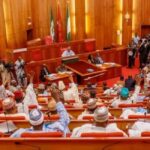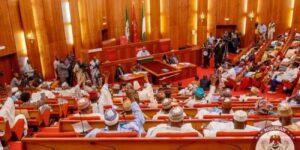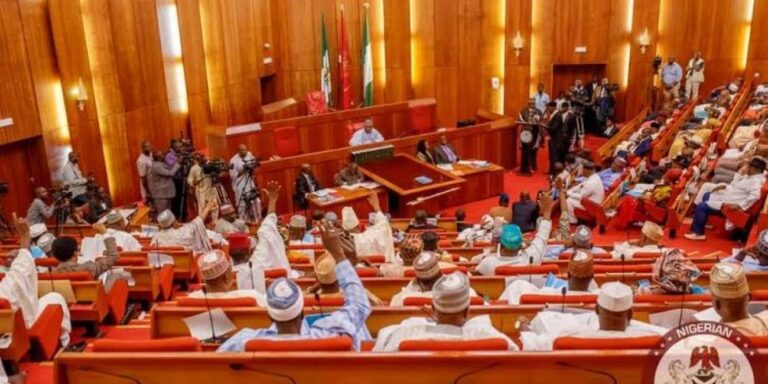
A seven-man panel of the apex court led by Justice Garba Lawal on Thursday also gave the AGF two days to file his reply upon receipt of the governors’ defence, The PUNCH reports.
The Supreme Court has given the 36 Nigerian state governors seven days to file their defence in the suit brought against them by the Attorney-General of the Federation and Minister of Justice, Lateef Fagbemi (SAN).
A seven-man panel of the apex court led by Justice Garba Lawal on Thursday also gave the AGF two days to file his reply upon receipt of the governors’ defence, The PUNCH reports.
“That within 2 days of service, the plaintiff will reply after being served the reply of the defendant Counter affidavit,” the court stated
The court held that the decision was predicated on the urgency of the suit and the non-objection from the Attorneys-General of the states.
Flagnews on Sunday reported that the Nigerian Government had filed a suit at the Supreme Court against the 36 state governors in the country.
The suit filed by Fagbemi seeks full autonomy for the local government areas in the country.
The government is asking the apex court to ban state governors from arbitrarily dissolving democratically elected local governments.
The Nigerian Government is also asking the apex court to stop the governors from maintaining joint accounts with local governments, describing it as unlawful and in violation of the provisions of the Constitution.
The Federal Government also wants the Supreme Court to prohibit governors from forming Caretaker Committees to manage local governments in violation of the Constitution’s recognised and protected democratic system. It is also seeking an injunction prohibiting governors, their agents, and privies from receiving, spending, or tampering with funds released from the Federation Account for the benefit of local governments in states without a democratically elected local government system.
According to the suit, Nigeria as a federation, was created by the 1999 Constitution, as amended, with the President as Head of the Federal executive arm, swearing on oath to defend and give effect to sections of the Constitution.
It told the apex court: “That the governors represent the component states of the Federation with Executive Governors who have also sworn to uphold the Constitution and to at all times, give effect to the Constitution and that the Constitution, being the supreme law, has binding force all over the Federation of Nigeria.
“That in the face of the violations of the 1999 Constitution, the federal government is not obligated under section 162 of the Constitution to pay any State, funds standing to the credit of local governments where no democratically elected local government is in place.”
The government also pleaded with the Supreme Court to invoke sections 1, 4, 5, 7 and 14 of the Constitution to declare that the state governors and State Houses of Assembly are under obligation to ensure a democratic system at the third tier of government in Nigeria and to also invoke the same sections to hold that the governors cannot lawfully dissolve democratically elected local government councils.
It also prayed for the invocation of sections 1, 4, 5, 7 and 14 of the Constitution to declare that dissolution of democratically elected local government councils by the governors or anyone using the state powers derivable from laws enacted by the State Houses of Assembly or any Executive Order, is unlawful, unconstitutional, null and void.
In a 13-paragraph affidavit that was deposed to by one Kelechi Ohaeri from the Federal Ministry of Justice, the AGF said he filed the suit under the original jurisdiction of the Supreme Court, on behalf of the Nigerian Government.
The deponent averred that the local government system recognised by the Constitution is about democratically elected local government councils which are to be funded via the Federation Account.




















+ There are no comments
Add yours